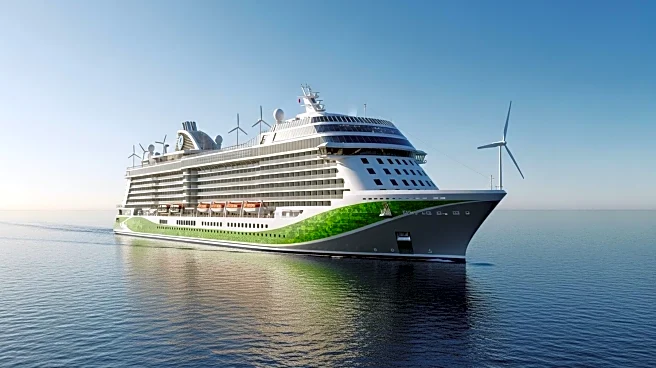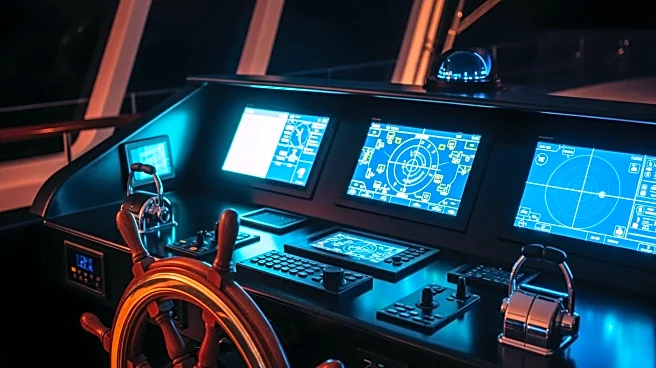What is the story about?
What's Happening?
The Cruise Lines International Association (CLIA) has released its 2025 Environmental Technologies and Practices Report, highlighting the cruise industry's progress towards sustainability and its goal of achieving net zero emissions by 2050. CLIA's 45 member companies are investing in innovative technologies, including advanced wastewater treatment, low-emission fuels, and shore-based power. The report details the diverse cruise fleet, with 310 ships offering 638,000 berths, and the adoption of zero-emission fuels, with 19 vessels currently equipped for low-emission operation. The industry is also focusing on onshore power supply to reduce port emissions and advanced water and waste management systems to enhance sustainability.
Why It's Important?
The cruise industry's commitment to sustainability reflects a broader shift towards environmental responsibility in the maritime sector. By adopting cleaner technologies and practices, the industry aims to reduce its carbon footprint and align with global environmental goals. This transition could set a precedent for other sectors, encouraging further investment in sustainable technologies. The industry's efforts to improve water and waste management also contribute to a circular economy, reducing reliance on landfills and promoting resource efficiency. These initiatives could enhance the industry's reputation and attract environmentally conscious consumers, potentially influencing market dynamics.
What's Next?
As the cruise industry continues to implement sustainable practices, it may face challenges related to infrastructure and regulatory support. The expansion of onshore power supply and the adoption of alternative fuels will require collaboration with ports and governments to ensure availability and compliance. The industry's progress towards net zero emissions will depend on continued investment in research and development, as well as partnerships with technology providers. Stakeholders, including cruise operators and environmental organizations, will need to monitor and evaluate the effectiveness of these initiatives to ensure they achieve the desired environmental outcomes.
Beyond the Headlines
The cruise industry's sustainability efforts raise questions about the balance between economic growth and environmental protection. The transition to cleaner technologies may involve significant costs, which could impact pricing and accessibility for consumers. Additionally, the industry's reliance on international cooperation highlights the importance of global collaboration in addressing environmental challenges. The long-term success of these initiatives will depend on the industry's ability to adapt to changing environmental regulations and consumer expectations, as well as its commitment to transparency and accountability in reporting progress.















